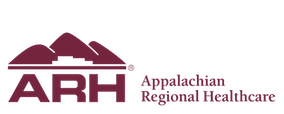Rewards of Working in Healthcare
A career in healthcare or medicine can be extremely rewarding – and it does have many benefits. For starters, there are a large variety of career opportunities for people from all educational backgrounds and interests. For example, individuals who do not want to be around blood, but want to work in healthcare, can work as administrative specialists or one several other “non-messing” positions.
Excellent Job Stability
Most fields within the healthcare industry are experiencing phenomenal job growth. The Bureau of Labor Statistics has reported that half of the 20 fastest growing jobs are located within the field of healthcare. The country’s population is aging and more Americans are in need of continued medical treatments and healthcare services than ever before. As long as people exist, there will always be strong demand for qualified doctors and healthcare professionals. Additionally, there are job opportunities in just about every field of healthcare in every major city in the nation. Whether you want to live in New York City or Salt Lake City, you’re sure to be able to find a healthcare job that meets your interests and qualifications.
Earnings, Benefits and Working Conditions
Healthcare and medical professionals earn competitive wages and typically enjoy flexible work schedules. Most healthcare workers receive generous benefits, including health insurance, retirement benefits, and paid vacations. Healthcare professionals employed at hospitals usually earn more money than workers at smaller medical clinics. Healthcare professionals in supervisory, managerial or administrative positions typically earn more than other healthcare professionals in their field. Individuals who specialize or obtain additional education can expect commensurate earning potential.
Hospitals operate 24/7, so hospital employees may be required to work early morning, afternoon, and night shifts to meet hospital demands. If you’re a night person, you could request to work nights. Healthcare professionals often have the ability to determine where and what time to work.
Many medical and healthcare employers provide tuition reimbursement and paid training to employees who committ to work for a specified period of time following graduation. Many hospitals also offer continuing education programs and paid higher education opportunities.
Fast Paced Environment
Every day in the healthcare industry is different from the next. This field provides many challenges. You’ll meet new patients daily — each of which faces unique struggles and issues that must be assessed and resolved. You’ll frequently handle life and death scenarios. You’ll be pushed to your limits working at a hospital and learn how to solve problems. You’ll also be constantly learning new things. Technology is altering how medical specialists provide care, so you must stay up to date with new technology and procedures. Hospital life can be fast paced and demanding — but always rewarding.
An Opportunity to Help People
In the healthcare industry, you’ll assist and work closely with people every day. Families will trust you with the lives of their loved ones. You’ll assist people recovering and healing from serious injuries and diseases, so many people will be appreciative of the consideration and dedication with which you perform your duties.
Patients constantly struggle with various physical health problems, as well as mental and emotion issues. They’re concerned about their families, health, and overall wellbeing. Many healthcare workers develop personal relationships with patients. Patients remember how you cared for them and vice versa. Is there greater service that can be offered than helping one recover from health problems? Individual lives are changed by the work of medical professionals.
At the end of the day, the healthcare industry is bar far one of the most rewarding career fields to work in.
Read the original article HERE at Career Profiles.



